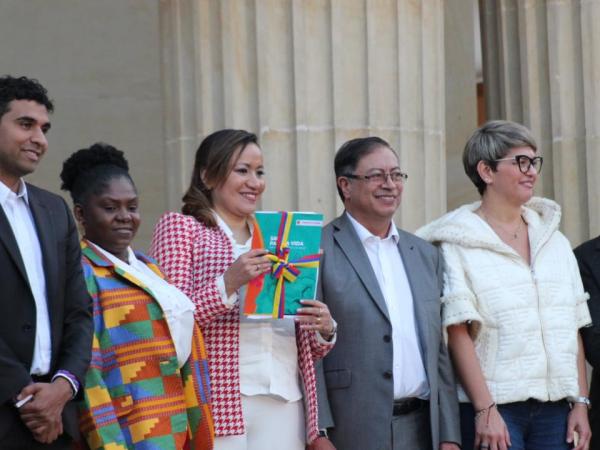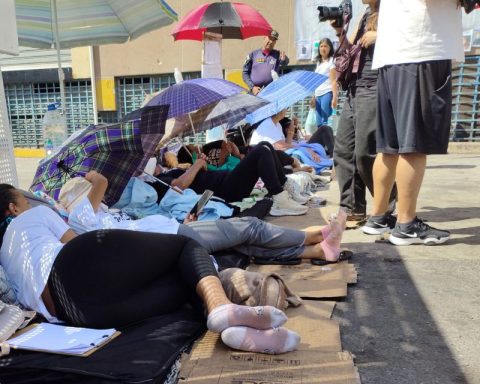The revision of the Amnesty Law, the opening of the dictatorship’s archives and changes in military education were some of the proposals defended at the seminar “Dictatorship never again, democracy always”, held this Friday (31) by the Rio de Janeiro branch of the Order of Lawyers of Brazil (OAB-RJ). The event, which was also broadcast over the internet, was organized to commemorate the 59th anniversary of the military coup. Lawyers, sociologists, historians, activists and relatives of those who died and disappeared during the military regime were present.
For lawyer Sérgio Sant’Anna, a member of the Transitional Justice and Memory Commission of the OAB-RJ, the Amnesty Law disregards fundamental rights and is incompatible with the 1988 Constitution. Approved in 1979, still during the military regime, it allowed exiled militants to return to the country, but also ensured that torturers were not criminally prosecuted.
In a decision taken in April 2010, the Federal Supreme Court (STF) recognized by 7 votes to 2 the constitutionality of the Amnesty Law. The discussion took place within a process brought by the OAB, which claimed the annulment of the pardon given to State representatives, such as police and military, accused of practicing acts of torture. “There are several segments within the OAB that understand that the discussion on the Amnesty Law should be rejected, also due to the jurisprudence of international law”, said Sant’anna.
In November 2010, seven months after the STF decision, the Inter-American Court of Human Rights considered the Amnesty Law illegal for containing provisions that prevented the investigation and punishment of serious human rights violations during the military regime. Brazil was condemned for ignoring obligations arising from International Law. In 2018, the Inter-American Court of Human Rights announced a new conviction, this time for the lack of investigation and trial of those responsible for the arrest, torture and death of journalist Vladimir Herzog, which occurred in 1975.
These decisions have even had repercussions in sentences of Brazilian courts. Last year, for example, the 8th Federal Criminal Court of Rio de Janeiro judged that the Amnesty Law violates the American Convention on Human Rights and denied the filing of three investigative procedures on crimes allegedly committed by public agents during the military dictatorship. The decision pointed out that crimes that represent serious violations of human rights are imprescriptible.
For Sérgio Sant’Anna, the lack of punishment for the agents involved in the regime established after the 1964 coup is related to the anti-democratic acts that took place at the beginning of the year. “January 8 demonstrates that we have to return to this debate”, evaluated the lawyer. On that occasion, supporters of former President Jair Bolsonaro, dissatisfied with the failure of his re-election attempt and his electoral defeat to President Luís Inácio Lula da Silva, invaded and destroyed the buildings of Praça dos Três Poderes, in Brasília. Many called for military intervention and openly advocated a coup d’état.
Victória Grabois, member of the Tortura Nunca Mais-RJ group, also defended the revision of the Amnesty Law and also demanded compliance with judicial decisions that determine the opening of the archives of the dictatorship. She lost her father, brother and husband during the military regime and claims that it has been a long time since she has seen such a large mobilization of relatives of the dead and disappeared, who were in Brasília for an audience with the Minister of Human Rights and Citizenship, Silvio Almeida. She, however, criticized the limitation of the number of people who could speak.
According to Victoria Grabois, more important than economic repairs are clarifications and memory preservation, so that it does not happen again. “Where, how and when did they kill our family members? That’s what we want to know,” she said. Despite court decisions determining the release of archives from the dictatorship, historians and researchers believe that there are still several materials kept secret.
Audio excerpts from a secret session of the Superior Military Court (STM) that took place in 1977, which had been kept confidential, was released in an unprecedented way by Agência Brasil. In it, general and minister Rodrigo Octávio admits to having witnessed a case of violence in an Army unit. The recording is part of material obtained by the lawyer and researcher Fernando Fernandes and gathered in the collection of the Voz Humana website, launched today (31).
military education
Historian and professor at the Federal University of Rio de Janeiro (UFRJ), Francisco Carlos Teixeira da Silva, presented a panel in which he assessed that military education allows the reproduction of the ideology of military tutelage over Brazilian society. He stated that the content taught distorts historical facts and defended that changes be made through ministerial ordinance.
For Francisco, narratives of exaltation of the military regime within the Armed Forces provide an ideological basis for acts that bring instability to democracy. He also called for an expansion of investigations into the anti-democratic events of January 8. “Accusing the 20,000 who went to Brasília, accusing the Federal District government of failing to act and ignoring what was happening within the Armed Forces at that time is very complicated”, he said.
The historian also considered the existence of monitoring of social movements by the Brazilian Army’s intelligence service to be illegal, which should be focused on mapping international threats and maintaining border surveillance. “It is not up to the Armed Forces to monitor the citizenship”.















